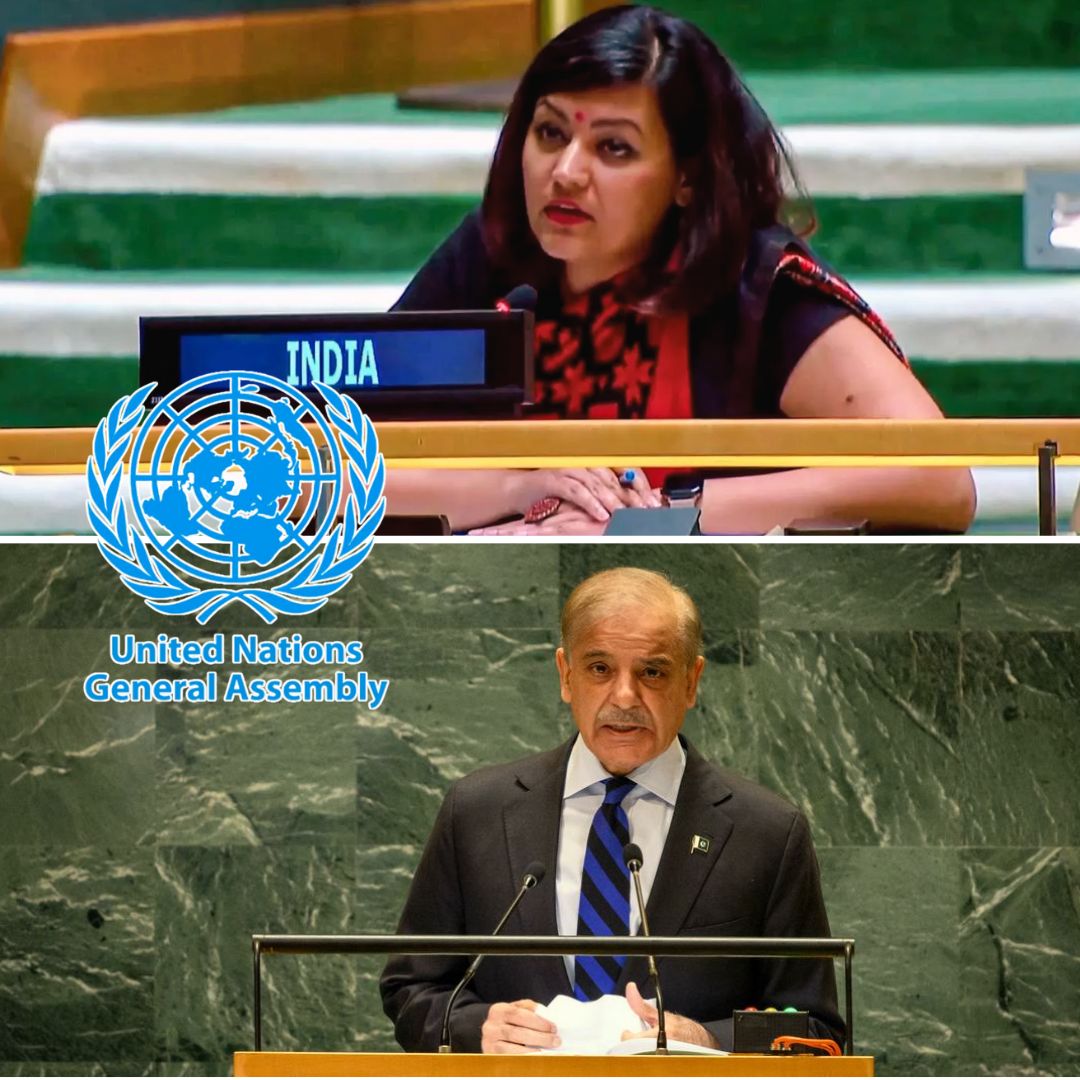India’s First Secretary to the UN, Petal Gahlot, delivered a blistering response to Pakistan Prime Minister Shehbaz Sharif’s speech, labelling it “absurd theatrics” meant to glorify terrorism. Gahlot pointedly criticised Pakistan for sheltering terror outfits like The Resistance Front, which was implicated in the April 2025 Pahalgam attack that killed 26 civilians in Jammu and Kashmir.
She recalled Pakistan’s history of harbouring terrorists, including Osama bin Laden, and underscored that no lies or drama could conceal these facts. Gahlot also countered Sharif’s claim that Pakistan shot down seven Indian fighter jets during the May operation named “Sindoor,” describing it instead as Pakistan’s military pleading for a ceasefire after suffering damage.
India asserted that Operation Sindoor targeted terrorist camps without harming civilians and called on Pakistan to shut down terror camps and hand over terrorists wanted by India.
Pakistan’s Narrative at the UN
Prime Minister Shehbaz Sharif characterised Pakistan as the victim of “unprovoked aggression” by India earlier in 2025 and claimed that Pakistani forces repelled the attack with “stunning professionalism,” shooting down Indian aircraft.
Sharif credited former US President Donald Trump for brokering a ceasefire and reiterated Pakistan’s demand for a UN-supervised plebiscite on Kashmir’s self-determination, condemning India’s governance in Jammu and Kashmir as tyranny.
He also raised the issue of India’s alleged violation of the Indus Waters Treaty, calling it “an act of war.” Despite these assertions, Pakistan’s claims about military victories and human rights abuses remain contested by India.
Background to the Conflict
The confrontation at the UNGA is rooted in longstanding tensions between the two neighbours. The catalyst was the April 22, 2025 Pahalgam terrorist attack on Indian and Nepali tourists, which India attributed to Pakistan-backed militants. India responded with Operation Sindoor in May, carrying out precise missile and air strikes targeting terrorist infrastructure across the Line of Control.
Pakistan’s subsequent military retaliation was reportedly repelled, with both sides accusing each other of aggression. These events have exacerbated diplomatic relations and renewed international focus on Kashmir and cross-border terrorism.
Economic Fallout from the Conflict
Beyond the military and diplomatic confrontations, the 2025 India-Pakistan conflict has severely disrupted the economic landscape for both nations, intensifying challenges in trade, tourism, and industry. India’s commercial sectors faced operational hurdles as airspace closures in Jammu, Punjab, and Gujarat led to the cancellation of over 1,100 flights, affecting international and domestic routes. The closure of major land trade corridors such as the Atari-Wagah border severely hindered cross-border commerce, particularly impacting exporters and importers in Punjab and Rajasthan.
The tourism sector, especially in Jammu and Kashmir, saw a drastic drop in bookings following the Pahalgam attack, depriving local economies of significant revenue. Financial markets experienced volatility, with foreign institutional investors withdrawing billions amid escalating hostilities. India incurred estimated economic losses exceeding $88 billion due to disruptions in supply chains, trade suspension, and heightened defence spending.
Pakistan’s economy, already fragile, faced exacerbated strain due to halted trade, increased defense expenditures, and dependency on imports for critical pharmaceuticals, prompting emergency sourcing from alternative countries. Analysts highlight that prolonged conflict threatens to further impede regional economic growth and investor confidence, underscoring the need for sustained peace to unlock the South Asian region’s economic potential.
The Logical Indian’s Perspective
The Logical Indian views this exchange as a reminder of the urgent need for genuine dialogue over rhetoric. Both countries have suffered from cycles of violence and mistrust, while millions of ordinary citizens on either side of the border endure the consequences.
Political posturing at international forums, though expected, should not overshadow the shared aspirations for peace, stability, and economic progress.
Exercising India’s right of reply on the Pakistan Prime Minister’s speech, Petal Gahlot, First Secretary at India’s UN Mission, stated:
— PIB India (@PIB_India) September 27, 2025
Mr President, this assembly witnessed absurd theatrics in the morning from the Prime Minister of Pakistan, who once again glorified terrorism… pic.twitter.com/BYbSqoVG3H











